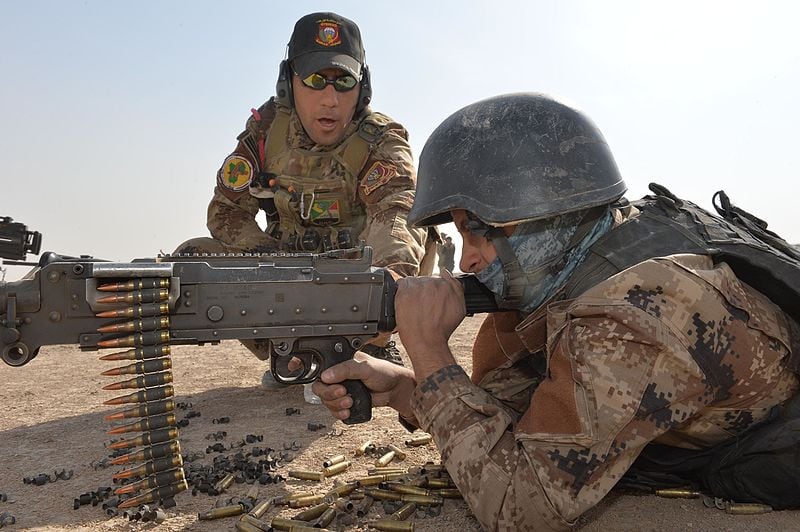A year after the Iraqi special operations units that lead the effort to defeat ISIS and suffered high casualty rates was reduced by nearly half its force in doing so, the lead inspector of the Defense Department will evaluate whether U.S. and coalition assistance to those units are enabling them to continue to defeat insurgents.
A memo published by the Inspector General of the Department of Defense announced the project his week.
“Our objective is to determine whether the U.S. and Coalition’s train, advise, assist, and equip efforts enable the Iraqi Qwat Khasah (Special Operations Forces) infantry units to defeat insurgents in accordance with theatre campaign objectives,” according to the memo signed by Kenneth Moorefield, deputy inspector general for special plans and operations.
RELATED

In its most recent funding request, the DoD told Congress that it needed support to train and equip one Ranger brigade, consisting of three battalions with 670 personnel per battalion. That Qwat Khasah Brigade will enable Iraq “to generate and deploy a fully capable force that is prepared to disrupt, destroy, and defeat ISIS and its affiliates.”
The battalions are also geared as a quick reaction force for direct-action operations. The goal, according to the 2019 budget request document, is to free up the Iraqi Counter-Terrorism Service for its national-level mission.
The CTS was one shining example of military success in the formation of units after the fall of Saddam Hussein, according to many experts. It held together after the ISIS led campaign took over large swaths of territories outside of Baghdad.
Because of the robust training and capabilities, the CTS was thrown into more conventional, high attrition fighting against ISIS elements in recent years, leading to the high losses.
The service led operations to retake Tikrit, Ramadi and Beyji in 2015, Fallujah in 2016 and Mosul through 2017. It was in Mosul where the CTS took heavy casualties that alarmed many concerned with the continued operational sustainability of the force.
The fiscal 2018 budget document requests noted that funding was “essential in rebuilding CTS combat power that suffered 40 percent battle losses in Mosul.”
The 2019 document continued that support, asking to train and equip 24 CTS battalions with 300 to 600 personnel each for a total of 13,000. An estimated 1,000 are “considered post-combat operation replacements.”
The Pentagon looks to the funding and manning of both the Qwat Khasah Brigade and the CTS as a way for CTS to return to “its primary mission of developing the capacity to combat insurgents and terrorists.”
Todd South has written about crime, courts, government and the military for multiple publications since 2004 and was named a 2014 Pulitzer finalist for a co-written project on witness intimidation. Todd is a Marine veteran of the Iraq War.





